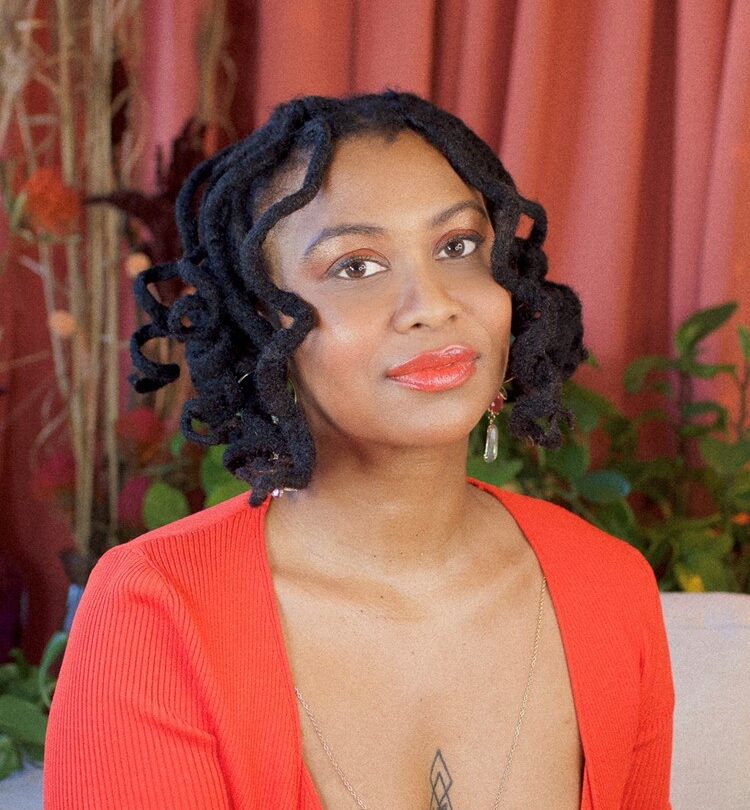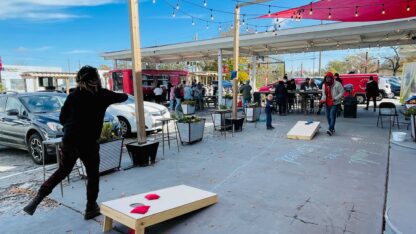New greenhouse cafe Nourish Botanica part of mission for food justice in Atlanta

Atlanta artist, activist, and entrepreneur Quianah Upton is building a safe space for equity, justice and collective wellbeing while you dine. Her new restaurant, Nourish Botanica, is also a greenhouse. Upton’s mission for Nourish Botanica is to bring Black joy to life by putting food justice at the center of her restaurant’s work. Upton joined “City Lights” host Lois Reitzes via Zoom to talk about fostering community and equity through conscientious eating.
Upton, born in the U.S. Virgin Islands, never even realized she’d spent her early years in Florida in food insecurity until she came to Atlanta as an adult. “I think that I bloomed personally, creatively, and my eyes were opened when I moved to Atlanta,” said Upton. “I began to meet a lot of farmers, and I began to get the verbiage and the language, and more of an understanding of the fact that I grew up in a food-insecure community, and I didn’t even know.”
One day, a friend brought her to Truly Living Well Center for Natural Urban Agriculture, a Black-owned community farm and educational space for people who want to learn about growing food and bringing it to tables in a city. Upton fell in love with the concept. “I’m Caribbean,” she said, “So I love plants and plant life just as an aesthetic. But to see Black people actually growing them and handling them, and we’re able to sustain ourselves and eat from it — it was a new thing for me at the time.”
The model inspired her to combine dining and food cultivation in a shared space, profoundly shortening food’s journey from farm to table that spans thousands of miles for many American meals. Nourish Botanica’s journey will culminate in the opening of this planned restaurant. Along the way, Upton is opening a plant shop, and a mobile botanical bar called Kiki.
For the cuisine at Upton’s future plant-based eatery, she plans “a lot of edible flowers, Caribbean and Southern, so plantains — I love plantains — beet, hummus, black-eyed peas. You know, we want to make it comfort food.”
These operations will be supplied by the Nourish Botanica greenhouse, cultivated by community members enrolled in farming classes there. “I’m in a location where there’s three schools … My hope is to do a lot of programming with the children in our greenhouse and nursery. That’s my biggest goal,” said Upton, “And seniors as well.”
“Nourish Botanica is the culmination of what happens when a Black artist is experimental, and she is using her artistry to tell the story of food and gathering people,” Upton said.
To follow Upton’s Nourish Botanica projects, fans of urban agriculture and healthy eating can visit www.nourishbotanica.cafe.








